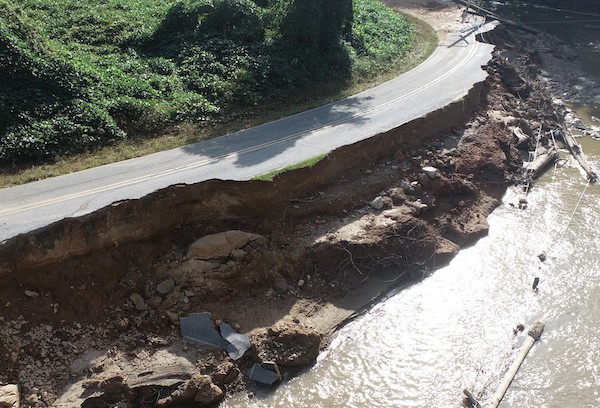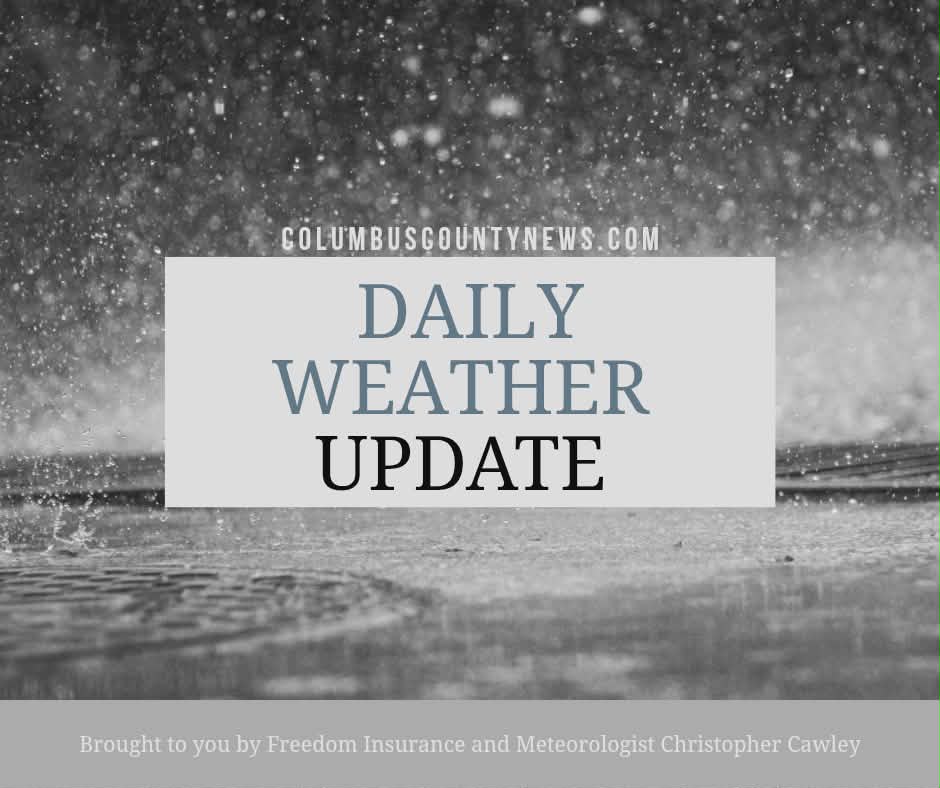The bipartisan State Board of Elections on Monday unanimously approved a long list of emergency measures to help Helene victims vote in the 2024 election and ensure election officials can provide accessible, safe, and secure voting options for residents of Western North Carolina.
Legislators on Wednesday voted to approve the emergency measures as p[art of a Hurricane Relief package. The measure was unanimously approved, and singed into law by Gov. Roy Cooper a short time later.
The 5-0 vote of Democrats and Republicans on the State Board came after extensive planning by the State Board in coordination with county election officials, public safety and emergency management officials, and the U.S. Postal Service.
The measures will apply to 13 counties where infrastructure, accessibility to voting sites and postal services remain severely disrupted after Helene. The affected counties are Ashe, Avery, Buncombe, Haywood, Henderson, Madison, McDowell, Mitchell, Polk, Rutherford, Transylvania, Watauga, and Yancey.
The provisions are also designed to help North Carolina voters living temporarily elsewhere inside or outside of the state or in disaster shelters to be able to vote. They also allow county boards of elections in the 13 counties the flexibility to modify early voting and Election Day voting sites and recruit additional poll workers to best accommodate their voters based on local conditions. And they allow election officials to continue to work with federal and state partners to provide election-related aid to the disaster counties, including temporary voting facilities and restrooms, generators, and other needs.
The emergency measures also include ways to get information about voting to voters housed in shelters and to western North Carolina in general. They were carefully crafted to avoid any detrimental effect on the integrity of the election or the security of ballots.
“These measures were put in place to ensure the victims of Helene can vote in the upcoming election and provide election officials in the hardest hit areas the tools they need to conduct a secure election under extraordinarily difficult conditions,” said Karen Brinson Bell, executive director of the North Carolina State Board of Elections. “Just like the people of western North Carolina, election officials are resilient. We are determined to get the job done for our neighbors and friends in western North Carolina.”
Measures approved by the State Board do all the following and more in the 13 counties:
In-person Voting
- Facilitate in-person early voting by allowing county boards of elections to modify their approved early voting sites, days, and hours through a bipartisan, majority vote.
- Allow county boards to modify Election Day polling places by bipartisan, majority vote. This provision also allows county boards of elections, with the approval of the State Board executive director, to open a polling place in another county, provided that materials, tabulators and voting processes are kept separate for each precinct’s voters at that location.
- Allow county boards – by bipartisan, majority vote – to set up their board of elections office to permit any voter in the county to vote at that site, in the event voters are unable to get to their Election Day precinct voting site or are unsure of their voting location. Some county offices may also serve as an early voting site, which allows any voter of the county to vote during the early voting period.
Absentee Voting
- Allow voters to request and receive an absentee ballot in person at their county board of elections office up until November 4 – the day before the election. As always, the voter or voter’s near relative or legal guardian is required to complete an absentee request form with the required personal information for the voter, and that information must be verified by the county board as with any absentee request.
- Allow voters to drop off completed absentee ballots at Election Day polling places operated by the voters’ county board by 7:30 p.m. on Election Day.
- Allow voters or their near relatives or legal guardians to hand-deliver completed absentee ballots to another county board of elections in North Carolina or the State Board of Elections office, as long as the ballot is received by 7:30 p.m. on Election Day. The county or State Board then would ensure that those ballots are delivered to each voter’s county board of elections by November 14 – the day before county canvass – to be counted. A log and chain of custody will be maintained to secure these ballots.
Poll worker recruitment and assignment
- Allow county boards – by bipartisan, majority vote – to appoint election officials who are registered to vote in other N.C. counties, to appoint emergency Election Day assistants and assign them to a precinct, and to reassign poll workers to different locations than their original assignment to ensure sufficient knowledge and expertise at each voting site.
Multipartisan Assistance Teams (MATs)
- Allow county boards – by bipartisan, majority vote – to schedule Multipartisan Assistance Teams to assist with absentee ballot requests and absentee voting at disaster shelters and other places where disaster relief is provided to the public. These teams may receive and deliver to county boards completed absentee ballot envelopes for voters.
Coordination with Emergency Officials
- Ensure the State Board continues its ongoing coordination with the N.C. Division of Emergency Management to provide election-related aid to the disaster counties, including temporary voting facilities, generators, temporary restrooms, and other needs.
State law (N.C.G.S. § 163-27.1) authorizes the State Board to exercise emergency powers to conduct an election where the normal schedule is disrupted by a natural disaster.
In approving the resolution, the State Board found that Tropical Storm Helene created an unprecedented natural disaster for Western North Carolina that disrupted and continues to disrupt the schedule of the general election.
The storm has taken many lives, severely damaged public and private property, and caused significant and lasting disruptions to essential utility services and systems, including power, internet, cell service, water, and transportation.
For comprehensive information on Voting After Helene, go to NCSBE.gov/Helene.





